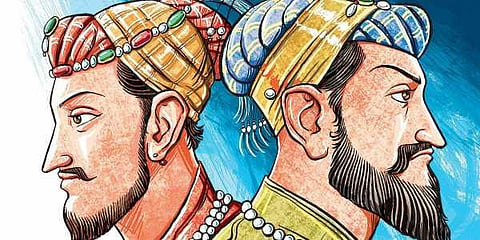

NEW DELHI: The Delhi High Court on Wednesday, December 15, 2021, refused to entertain a PIL seeking removal of NCERT history books’ content which said that Aurangzeb and Shahjahan had commissioned the repair work of Hindu temples destroyed by Mughals during wars.
“We can’t understand what the policies of the government are today and you want us to decide on the policies of Aurangzeb and Shah Jahan,’’ said a division bench of Chief Justice DN Patel and Justice Jyoti Singh.
The petition was filed by one Sanjeev Vikal who submitted before the court that with no evidence to back the claim and an RTI in this regard revealing the same, the unfounded claim ought to be removed from the textbook as “crores of students of the 12th grade” would be reading it.
He also added that this was an attempt to “glorify the image of the Mughal emperor, Aurangzeb” who was otherwise one of the most “fierce” emperors of the time. The court was not convinced by the petition and Vikal’s arguments and said that it would dismiss the same with costs, unless withdrawn.
The court later allowed the petitioner to withdraw the plea. Meanwhile, the bench also warned that it will impose costs on the petitioner for filing such frivolous petitions however it refrained from doing so after it was informed that the petitioners are students studying in school.
The court advised the petitioner that the “champions of useless PILs” should instead file a petition on evasion of taxes. “If at all you are a champion of PILs you should come out with matters where there is a tax evasion issue so that notices are issued and money is deposited. We don’t know what happens to you people in those matters,” the bench said.